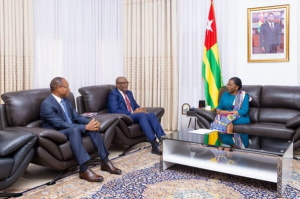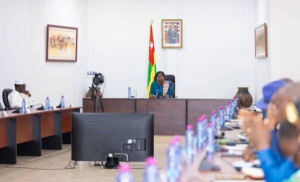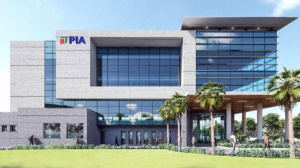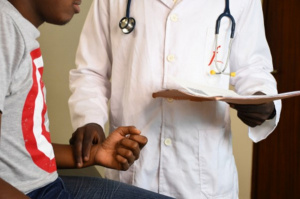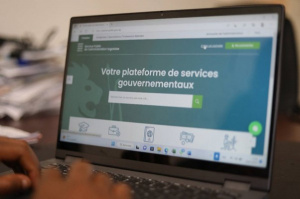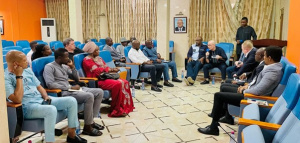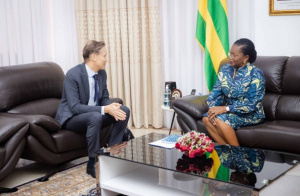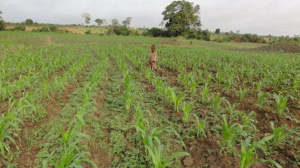Togo First
Mesofinance: Pascal Mawuli Kové Picked to Lead COFINA-Togo
Pascal Mawuli Kové is the new boss of COFINA-Togo, the Togolese arm of COFINA Group, a mesofinance company. Earlier this week, Kové, a Togolese, met with Prime Minister Victoire Tomégah-Dogbé.
COFINA has been operating in Togo since 2020 and now holds over CFA30 billion in major loans. With more than 200 employees, it is the second-largest mesofinance institution in the country, following SOGEMEF. The company plans to expand its financial services and continue growing.
Pascal Mawuli Kové stated, "Our main focus is financing the local economy by supporting Togolese entrepreneurs with tailored solutions. We will step up on the recruiting and training front, through our Academy of Excellence." He emphasized that the subsidiary is working to establish a strong presence in Togo.
Kové previously worked at COFINA’s branch in Dakar, Senegal, where he contributed his expertise in strategy and finance. In Togo, he takes the place of Marcel Djigbé.
This article was initially published in French by Ayi Renaud Dossavi
Edited in English by Ola Schad Akinocho
Togo Extends Security Emergency in Savanes Region Until 2026
The National Assembly of Togo has extended the state of security emergency in the Savanes region for another year. It is now set to last until March 2026. On Thursday, March 6, 2025, lawmakers approved the government’s request for this extension.
This is the fourth time the emergency state has been extended since first declared in June 2022. It was previously extended in September 2022, April 2023, and March 2024. Authorities have justified the move by citing persistent security threats in northern Togo.
Officials have explained that the extension allows the government to adapt its response to evolving threats and continue efforts to protect people and property. The measure also aims to maintain public order and safeguard the country’s territorial integrity.
The Savanes region has been facing attacks from armed terrorist groups since November 2021.
Togo: Government Reviews and Reinforces National Anti-Flood Strategy
The Gnassingbé administration held this week a meeting to review its flood risk management strategy, amidst recurring floods in the Greater Lomé area.
The meeting gathered Prime Minister Victoire Tomégah-Dogbé and key stakeholders. They assessed actions implemented last year and planned those to be taken this year.
CFA1.7 Billion Allocated for 2024 Flood Preparedness and Response Plan
Last year, around CFA1.7 billion was mobilized for the Flood Preparedness and Response Plan (FRP). External partners provided CFA1.69 billion and the government CFA50 million.
Of the 38 actions planned under the Response Plan 37 were successfully implemented. They included evaluating sites to receive disaster victims, acquiring pumping equipment, conducting public awareness campaigns through media and local outreach, and maintaining water drainage systems.
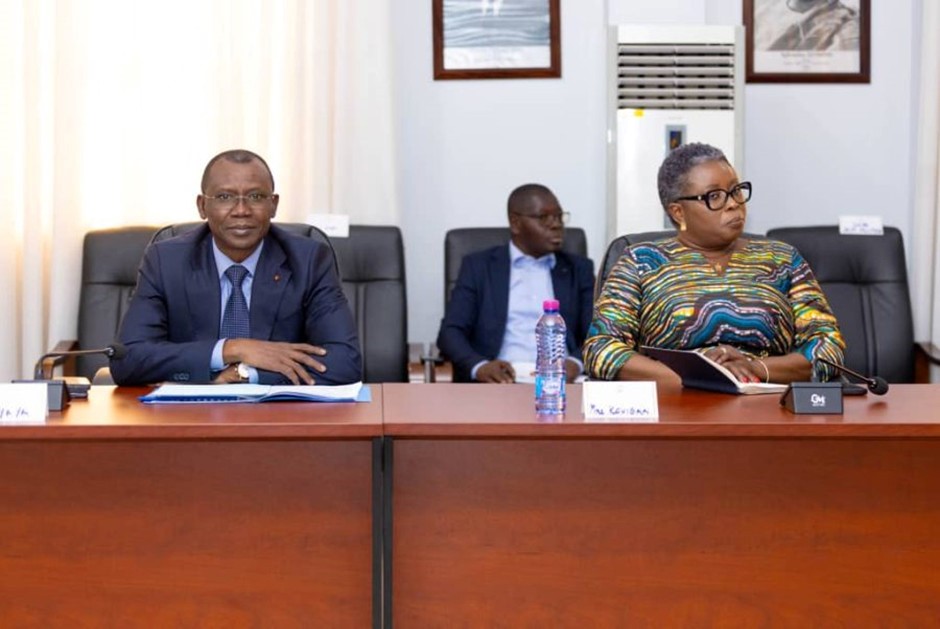
Preventive Measures for 2025
For 2025, the government has earmarked 26 new actions to minimize flood risks: upgrading urban drainage infrastructure, enhancing drainage system capacity, and expanding public awareness initiatives, among others.
The government plans to establish a special committee to coordinate these actions, efficiently.
PM Tomégah-Dogbé called for citizen engagement in the government’s efforts.
Togo should soon receive CFA17 billion from the Green Climate Fund via the West African Development Bank (BOAD) to tackle the flood issue.
This article was initially published in French by Ayi Renaud Dossavi
Edited in English by Ola Schad Akinocho
Togo: PIA to Expand as ARISE IIP Secures $450M from Afreximbank
ARISE Integrated Industrial Platforms (ARISE IIP) will soon boost its African industrial park investments, particularly in Togo. The firm recently secured a $450 million commitment from the African Export-Import Bank (Afreximbank).
In detail, $300 million will help bolster existing parks, including Togo’s Industrial Platform of Adétikopé (PIA), and launch new projects in the Democratic Republic of Congo, Kenya, Chad, Nigeria, and Côte d'Ivoire. The remaining $150 million will help build an industrial park in Malawi and bolster agricultural export activities.
The $450 million investment is part of a broader $800 million initiative to boost African industrialization.
"This $450 million facility represents a major step forward in supporting Africa's industrialization efforts," said Arvind Arora, Treasury Director of ARISE IIP. "This financing covers critical working capital and capital expenditure requirements in various countries, addressing the diverse needs of industrial development."
Last year, many major global shipping firms joined the PIA in Togo. They include MSC (Italy-Switzerland), MAERSK (Denmark), CMA CGM (France), PIL (Singapore), and ONE (Japan). However, most (around 60%) of the companies on the site are regional and local; they operate in various sectors, such as textiles, agrifood, and pharmaceuticals.
This article was initially published in French by Ayi Renaud Dossavi
Edited in English by Ola Schad Akinocho
Togo: Creative Industries Market Earned $16M in 2024
Togo’s cultural and creative industries (CCI) generated $166 million (over CFA100 Billion) in 2024–about 1% of the country’s GDP. The French Development Agency (FDA) recently reported the figure in a study covering key segments like music, audiovisual production, cinema, and digital arts.
According to the same source, cultural and creative industries employ around 135,000 people (134,293), or 4% of Togo’s workforce. This includes 70,987 women (52%) and 20,754 youths aged 15 to 24 (15%). Exports of cultural goods and services brought in $24 million.
However, the report highlights that 92% (123,953) of the jobs in this sector are informal. Informal activities alone generate $51.98 million in revenue.
Structural Reform Needed
Togolese filmmakers produce around 70 films annually, including six foreign productions. The local cinema industry is growing but still struggles to professionalize.
The government adopted a Film and Moving Image Code and created the National Film and Audiovisual Industry Support Fund (FoNSICA) to organize the market and boost local production.
Challenges such as limited access to financing, insufficient technical skills, and inadequate distribution infrastructure hinder the industry’s development. Togo has only two movie theaters operating regularly, making it difficult to showcase local productions.
This article was initially published in French by Ayi Renaud Dossavi
Edited in English by Ola Schad Akinocho
Togo Adopts New Tools to Fight Neglected Tropical Diseases Better
Last week, Togo approved two new management guides on neglected tropical diseases (NTDs). The documents were validated on February 28 in Kpalimé. They are expected to help better diagnose and treat skin diseases in Togo, especially in its rural parts.
This effort is part of a project titled "Improving the Diagnosis and Treatment of Cutaneous NTDs in Togo Using Information and Communication Technologies." The Togolese Society of Dermatology and Sexually Transmitted Infections (SOTODERM) leads the project with support from the German Association for the Fight Against Leprosy and Tuberculosis (DAHW) and the Togolese Ministry of Health. The German Ministry for Economic Cooperation and Development (BMZ) funds the program.
The guides provide health workers with descriptions of skin conditions, screening methods, and treatment protocols tailored to local needs. Dr. Gnossikè Piham, who leads Togo's National NTD Programme, said these tools will expand care access in remote areas.
Prof. Picthé Palokinam, SOTODERM's chairman, lauded the partners' dedication and highlighted the guides' importance in addressing NTDs, a major health issue in West Africa.
SOTODERM recently launched a teledermatology project to support areas with high skin disease rates. This initiative allows remote diagnosis and medical follow-ups to improve care in rural regions.
Togo: National Cybersecurity Agency Adds Three New Options to Public e-Services Platform
The Togolese public e-services platform recently welcomed three new options. The options were integrated by the National Cybersecurity Agency (ANCy).
Effectively, the platform’s users can now submit, online, applications for qualifying service providers and security products, and directly request approvals from assessment centers. They can also track their applications in real time and communicate with ANCy using a built-in chat tool. The move falls under the government’s efforts to modernize public administration while addressing the need for secure online transactions in a world increasingly reliant on digital tools.
Launched in 2021, the ANCy was set up to regulate and secure digital activities in Togo.
Russian Sweets Behemoth UNICONF Eyes Togo’s Cocoa
Russia’s leading sweets maker, United Confectioners (UNICONF), is eyeing Togo’s cocoa market. A delegation from the firm was in Lomé from February to March 4. They were led by Sergey Lyubimov, one of its executives.
The team met with various local businesspeople during their stay. They mostly discussed Uniconf's plans to invest in processing and marketing Togo’s cocoa. The Russian delegation took stock of Togolese regulations and tax policies to evaluate potential partnerships and long-term operations.
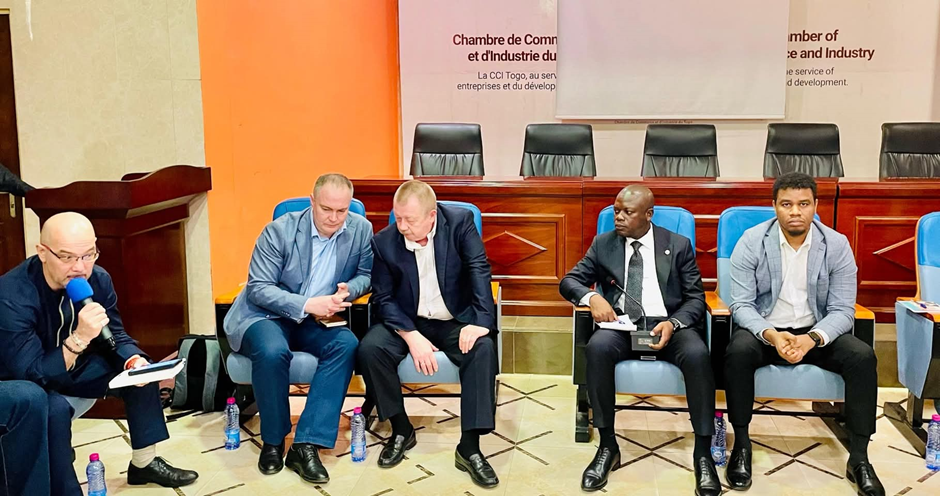
According to Togo’s Chamber of Commerce and Industry, partnering with Uniconf could boost the local cocoa industry, fostering industrialization and job creation. Cocoa is Togo's third most valuable cash crop, behind cotton and coffee.
Founded in 1804, UNICONF is the leading confectionery company in Russia and Eastern Europe. Present in 45 countries, the giant produces around 360,000 tonnes of sweets yearly.
This article was initially published in French by Esaïe Edoh
Edited in English by Ola Schad Akinocho
Blue Economy: Togolese PM Talks Coming BlueInvest Africa Forum with EU Ambassador
On March 4, 2025, Gwilym Ceri Jones, the European Union’s Ambassador to Togo, met with Prime Minister Victoire Tomegah-Dogbé. During the audience in Lomé, Jones and Tomegah-Dogbé reviewed the EU-Togo partnership, focusing on energy, agriculture, and digital technology.
They also discussed the Global Gateway, an EU investment program supporting sustainable infrastructure in Africa. "We discussed concrete actions in these sectors and explored new opportunities for collaboration," Jones revealed after the meeting.
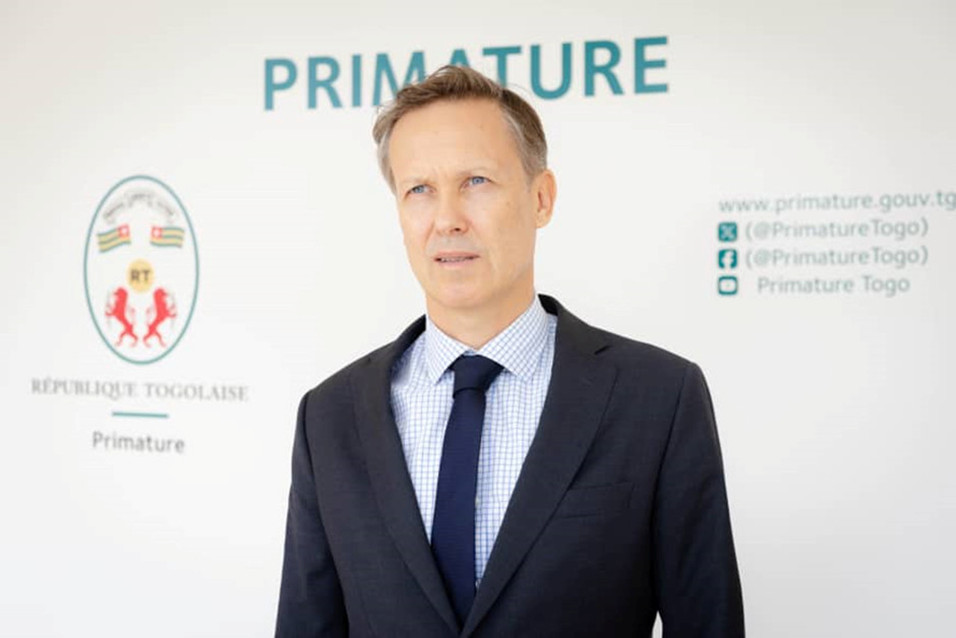
BlueInvest Africa 2025 Forum
The officials also talked about preparations for the BlueInvest Africa 2025 forum. Launched by the European Commission in 2022, BlueInvest Africa connects African entrepreneurs in the blue economy with international investors. Lomé will host the event next semester.
BlueInvest aligns with Togo's vision to become a regional logistics hub by leveraging its maritime and port strengths. The EU partnership offers Togo a chance to attract investments and modernize its infrastructure.
This article was initially published in French by Ayi Renaud Dossavi
Edited in English by Ola Schad Akinocho
Agriculture, Environment: Togo Secures $5.7M from South Korea
South Korea recently provided Togo with $5.7 million to support two major projects–one to boost agriculture and another to fight deforestation. The projects were officially launched on February 28, 2025, in Lomé, in the presence of Moon Dongkyu, representing the South Korean ambassador in Togo.
The first project, "Development of Socio-Economic Infrastructures to Support Rural Communities in Togo", received $3.5 million. It will focus on improving rural infrastructure by installing post-harvest processing solutions, solar-powered systems for agricultural processing, and clean drinking water facilities. Additionally, it will include an incubation program to train young people and women in managing environmentally sustainable businesses.
The second project, "Strengthening People's Resilience to Climate Change through Sustainable Management of Forest Resources", received $2.2 million. It aims to enhance governance and knowledge-sharing in shea parks, promote reforestation using high-quality shea seedlings, and improve post-harvest practices to increase income. The project seeks to strengthen sustainable shea production and conservation. It will be developed in partnership with local women and youth associations.
While funded by South Korea, the projects are implemented by the Global Green Growth Institute. They align with Togo’s efforts to fight climate change and achieve the Sustainable Development Goals.
In this regard, Dindiogue Kolani, Director of Cabinet for the Minister of Agriculture, commented: “In the current climate change context, it is imperative that Togo boosts rural communities’ resilience and develop appropriate infrastructure.”
Kolani also stressed global warming’s impact on rural areas: “Rising temperatures, prolonged droughts, flooding, and soil degradation heavily impact these communities that rely on natural resources for their livelihoods.”
This funding builds on South Korea’s ongoing support for Togo in agriculture and environmental protection. South Korea is already involved in the Kara Agropole project and has also supported equitable access to essential services for children in northern Togo.
This article was initially published in French by Esaïe Edoh
Edited in English by Ola Schad Akinocho

